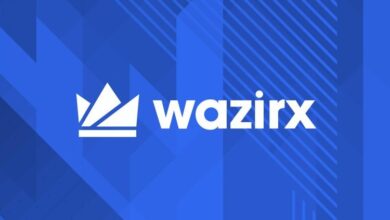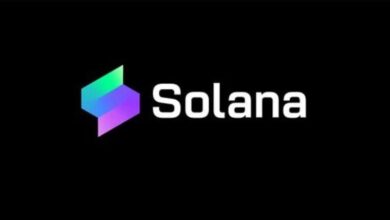Sovrin Foundation’s Sovrin token now available for public testing

The Sovrin Foundation, the nonprofit organization responsible for implementing the open source governance, operations, community engagement, and widespread adoption of the Sovrin Network,has made Sovrin Token available for public testing. The Sovrin Token provides an independent payment option for the Sovrin Network, a decentralized, global network that establishes a new data model — called self-sovereign identity (SSI) — where people, businesses, and organizations retain unprecedented control over their data and how they share it. Testers may access test tokens at Selfserve.sovrin.org
The Sovrin Foundation developed a native protocol token to support its global mission of providing everyone with a technology-agnostic system for sharing verifiable identity credentials. This system was launched in 2017 as the Sovrin Network, an open-source platform that is now running on six continents through the support of over 80 Stewards. Stewards are organizations and businesses that voluntarily operate the validator nodes running the network after complying with rigorous vetting and agreeing to governance requirements that keep the network independent. Currently, millions of end-users are using Sovrin’s trustworthy, open source network with several in-market solutions already available, and dozens more Sovrin-enabled products in development.
The self-serve token testing portal is designed for developers and enterprises working with World Wide Web Consortium (W3C) standards for decentralized identifiers (DIDs) to test the practical implementation of tokens on the Sovrin Network.
“While this is expressly not an ICO, we’re thrilled to open up the self-serve portal and welcome support from the crypto community in helping us test how tokens work on a decentralized network for identity. ,” said Heather C. Dahl, CEO of the Sovrin Foundation. “As data regulations such as GDPR and CCPA mature and evolve, we see SSI as the most regulatory compliant model for internet-scale digital identity, one that moves us past our present, failed system of centralized and unsafe ‘identity providers.’ We’re making the Sovrin Token free for public testing because a sustainable global network for identity needs a system for transaction payments that doesn’t require people to rely on fiat money—as fiat money requires third party payment processing and a return to the broken system of identity verification that decentralized networks seek to fix.”
A native token protocol could simplify many kinds of identity transactions. An example of a scenario when the Sovrin Token may be used on the Sovrin Network include a credential holder paying a credential issuer for a verifiable credential; in other words, your payment for a digital passport. Other Sovrin Token use examples include, Holder Pays Issuer – Obtaining a College Transcript, Verifier Pays Holder – Medical study pays participants, and Holder Pays Verifier – University application paying an application fee
A native protocol token provides all identity holders everywhere maximal privacy and security. The invoice and billing system the Sovrin Foundation currently uses to collect fees for writes to the ledger relies on third parties to resolve payments on the network and runs counter to the fundamental goal of the Sovrin Network. Publicly testing the native Sovrin Token is a huge step towards delivering a reliable, privacy-protecting global system for individuals to control their identity.
Token testing is currently limited to two of the three Sovrin Networks– BuilderNet and StagingNet. BuilderNet is intended to be used in initial trials with setting up agents, DIDs, and Schemas. StagingNet provides a more stable protocol for end-user testing and demos.
Participating in Sovrin Token testing requires the installation of a Sovrin-compatible agent with a digital wallet that can store the private counterparts of the public keys. In other words, it requires the creation of the items in a private digital wallet, before the SelfServe tool can add them to the ledger on the requested Sovrin Network. Instructions have been posted on Sovrin.org providing a step-by-step guide to a command line interface (CLI) that provides access to a secure wallet on any Ubuntu, Mac, or Windows machine.





